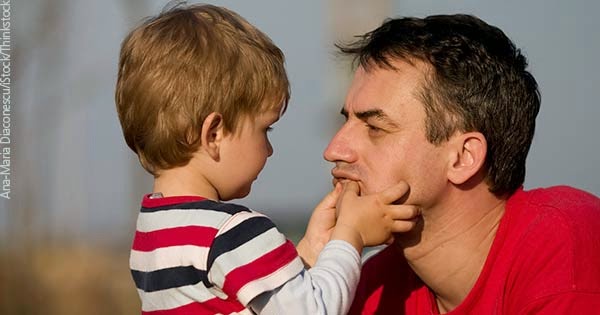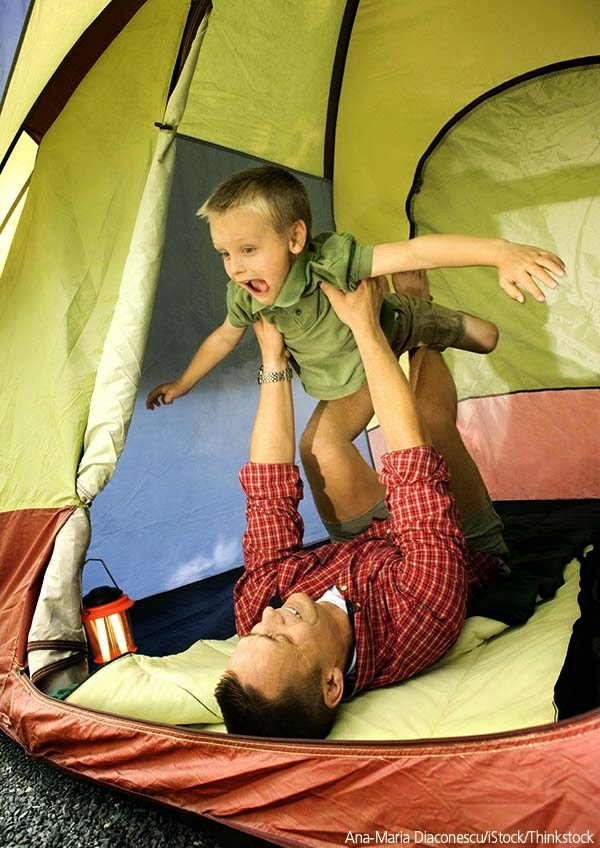Twice yearly, I pay visit to my beloved redwoods along the coast or somewhere in the northern most part of our beautiful, diverse state. It is a much needed pilgrimage, away from my schedule, computers, and the usual demands of everyday life.
One never knows—but prays—that whoever is camping next to us, honors the golden rule of camping: to be considerate and respectful. This year, we camped alongside two 3-year-old boys and their fathers. We were not sure of what to expect.
Over the course of several days, I was in awe of the sense of order, kindness, and patience these two thirtysomething fathers displayed toward their young sons. I saw them bend their knees repeatedly, getting down to eye level, to explain rules and expectations. I never once heard a raised voice, a time-out, or a scolding during a meltdown. At one point, one of the boys had grabbed a toy from the other. A hit or shove followed. Soon after, I heard a very thoughtful parent respond: “Noah, is that the way we treat our friends?” “Can you use your words?” “We are all here to have a good time, not to fight.”
Quiet time was a creative request in the tent, with no resistance from the young preschool boys. This allowed downtime for both fathers and sons, and gave the two dads time to talk about work and just have time for one another.
The day consisted of an early rise for breakfast, a bike ride one day in the forest, and then perhaps a short-distance hike on another day. Meals and snacks were offered at regular intervals. Toward the end of the day, tired cries and pleads for bedtime were heard, but not for very long.
In the words of Tom Limbert, author, dad, and parent educator, “You’re a role model and you might as well use it to your advantage. If you bring energy and enthusiasm to each day and to each relationship, your children will witness this and emulate it.” Tom also correlates good coaching with good fathering.
Parenting is about guiding, explaining, and getting our children to ultimately guide themselves. Making good decisions and anticipating “what the next play will be” help our children to respond to life’s many challenges along the way.
As I was leaving the campground, I bumped into one of the young fathers camping next to us and commented on what “a great time the two boys were having.” “Oh thanks,” replied the Dad. “It’s a lot of work, but we are having a good time.” “You are doing a great job,” I said. The young father looked at me, a bit puzzled. “I wish you could tell that to their mothers!” he said.
I have heard more than one father comment, “It seems that I can’t do anything right!”
Father’s have a very definite set of gifts that they bestow on their children:
- Encouraging their children to take more risks.
- An ability not to get mired in “keeping things neat, clean, and in order,” but still managing to have a good time and accomplishing the project.
- A new perspective and a fresh approach to problem-solving.
- Energy to wrestle, play hard, and be part of modeling physical activity and using our bodies.
- Developing a strong self-concept in daughters by challenging them physically, hence developing skills and body-confidence.
I was touched by a parent consultation of two fathers who understood their adopted daughter’s need to remove her shoes in class and play just as roughly and competitively with the boys at recess! Their child’s teacher was concerned about these her ”behaviors,” but the fathers did not see them as a concern at all. They also loved these qualities in their very physical and “free-to-be-me” daughter.
There is more than one way to parent and to take care of our children. Embracing the “differences” in how fathers guide and work with their children is important. Letting them know that they are doing a good job is a good deed that serves both the father and child relationship.




